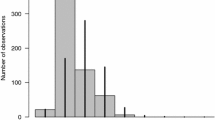Abstract
William Riker ((1964) Federalism: Origin, Operation, Significance. Boston: Little Brown) stressed the problem of the contested nature of federal institutions and argued that federations existed amidst the ongoing challenge to their rules, that federal institutions were being continuously endogenously produced in the interaction of political parties rather than serving as self-enforceable constraints on the political process. As parties changed, so did federalism, and eventually the balance was bound to shift to either one or the other extreme as far as the degree of centralization was concerned. An alternative approach to essentially the same problem of federal instability was to conceptualize the underlying game differently, as a game of coordination, so that institutions would be accepted as constraints and would therefore be self-enforceable because they allow the players to avoid the chaos and successfully converge to an outcome with payoffs exceeding their reservation values (Hardin, 1989, Ordeshook, 1992). The third proposed solution, consociationalism, emphasizes the elite effort to overcome the conflictual nature of the institutional choice (Lijphart, 1977). Here, as in the coordination argument, the hope is that one could create incentives for politicians to view the existing rules as advantageous and to avoid redistribution by means of the institutional revision. Yet, just like the coordination argument, it is based on an implicit assumption that politicians are more easily motivated to act “cooperatively” than are their constituencies. The missing step in the literature is the mechanism by which this more or less “cooperative” behavior of elected politicians could be sustainable in the environment of popular accountability. An essential component in building the theory of institutional design is to show the possibility in a democracy of elected politicians cooperating on institutional matters even when each of their constituencies would prefer to adjust the constitutional terms to its own advantage. Elite “cooperativeness” must be sustainable even in the presence of outside challengers promising to stay closer to the constituent preferences. Here, I present a model of mass-elite equilibrium of constitutional legitimacy, which demonstrates the possibility to motivate the incumbents to sustain the institutional stability while at the same time protecting them from electoral defeat. I also discuss the difficulties and limitations that such a solution faces, in particular, in plural societies.
Similar content being viewed by others
References
Brancati, D. (2005) “Pawns Take Queen: The destabilizing Effects of Regional Parties in Europe”. Constitutional Political Economy 16(2): 125--141
R. L. Calvert (1995) The Rational Choice Theory of Social Institutions: Cooperation, Coordination and Communication J. S. Banks E. A. Hanushek (Eds) Modem Political Economy Cambridge University Press Cambridge
M. Filippov O. Peter S. Olga (2004) Designing Federalism: A Theory of Self-Sustainable Federal Institutions Cambridge University Press Cambridge
C. J. Friedrich (1968) Trends of Federalism in Theory and Practice Praeger New York
D. Fudenberg T. Jean (1991) Game Theory The MIT Press Cambridge, Massachusetts
A. Greif (1997) On the Social Foundations and Historical Development of Institutions that Facilitate Impersonal Exchange: From The Community Responsibility System to Individual Legal Responsibility in Pre-Modern Europe John M. Olin Program in Law and Economics, Stanford Law School Stanford, CA
R. Hardin (1989) Why a Constitution? B. Grofman D. Wittman (Eds) The Federalist Papers and the New Institutionalism Agathon Press New York
D. L. Horowitz (1985) Ethnic Groups in Conflict University of California Press Berkeley
Hug, S. (2005). “Federal Stability in Unequal Societies” Constitutional Political Economy 16(2): 113–124
Lake, D. A., and Roth Child, D. S. (2003) Territorial Decentralization and Civil War Settlements (typescript) UCSD.
A. Lijphart (1977) Democracy in Plural Societies: A Comparative Exploration Yale University Press New Haven
I. Lustick (1979) ArticleTitleStability in Deeply Divided Societies: Consociationalism versus Control World Politics 31 IssueID3 325–44
W. E. Oates (1972) Fiscal Federalism Harcourt Brace Jovanovich New York
P. Ordeshook (1992) ArticleTitleConstitutional Stability Constitutional Political Economy 3 IssueID2 137–75
W. Riker (1964) Federalism: Origin, Operation, Significance Little Brown Boston
C. Tiebout (1956) ArticleTitleA Pure Theory of Local Expenditures Journal of Political Economy 64 IssueID5 416–24 Occurrence Handle10.1086/257839
G. Tsebelis (1990) Nested Games: Rational Choice in Comparative Politics University of California Press Berkeley
B. R. Weingast (1995) ArticleTitleA Rational Choice Perspective on the Role of Ideas: Shared Belief Systems and State Sovereignty in International Cooperation Politics and Society 23 IssueIDDecember 449–64
B. R. Weingast (1997) ArticleTitleThe Political Foundations of Democracy and The Rule of Law American Political Science Review 91 IssueID2 245–63
Author information
Authors and Affiliations
Additional information
JEL classification: H77, D02
In working on this paper, I have benefited from the discussions with Mikhail Filippov, Peter Ordeshook, Charles Kromkowski, Carol Mershon, and from the comments of the participants of the conference on ‘‘Micro-Foundations of Federal Institutional Stability’’ at the MicroIncentives Research Center at Duke University, Durham, NC, April 30–May 1, 2004, and of the Lansing Lee proseminar at the University of Virginia. The responsibility for the many remaining flaws is solely mine.
Rights and permissions
About this article
Cite this article
Shvetsova, O. Mass-Elite Equilibrium of Federal Constitutional Legitimacy. Constit Polit Econ 16, 125–141 (2005). https://doi.org/10.1007/s10602-005-2232-8
Issue Date:
DOI: https://doi.org/10.1007/s10602-005-2232-8




